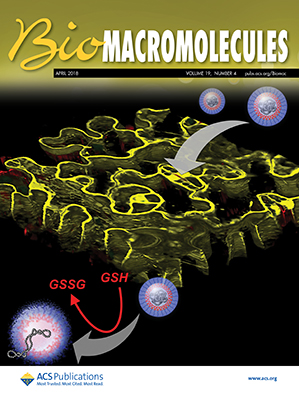融合蛋白构建块的无细胞蛋白合成使球状蛋白囊泡原细胞自主生长。
IF 5.4
2区 化学
Q1 BIOCHEMISTRY & MOLECULAR BIOLOGY
引用次数: 0
摘要
自主合成构建模块和功能分子的能力是活细胞的基本特征。在囊泡平台内封装复杂的合成系统,如无细胞蛋白合成(CFPS),推动了人工细胞发育中更复杂的仿生学领域的发展,但合成功能蛋白作为膜组分仍然具有挑战性。在这项研究中,我们报道了CFPS系统与球状蛋白囊泡(GPVs)的成功整合,GPVs是一种功能折叠的蛋白质组装囊泡平台。我们证明了作为GPV构建块的模块融合蛋白的体外转录和翻译促进了新合成的融合蛋白直接结合到囊泡膜中。该系统支持膜组分的表达,使gpv能够自主生长。我们的方法标志着合成细胞的发展取得了实质性进展,提供了一种多功能和强大的策略,以扩大通过从头蛋白质生产可实现的仿生功能的可用库。本文章由计算机程序翻译,如有差异,请以英文原文为准。
Cell-Free Protein Synthesis of Fusion-Protein Building Blocks Enables Autonomous Growth in Globular Protein Vesicle Protocells
The capacity for autonomous synthesis of building blocks and functional molecules is a fundamental feature of living cells. Encapsulating complex synthesis systems, such as cell-free protein synthesis (CFPS), within vesicular platforms has propelled the field toward more intricate biomimicry in artificial cell development, yet synthesizing functional proteins as membrane components remains challenging. In this study, we report the successful integration of a CFPS system with globular protein vesicles (GPVs), a functionally folded protein-assembled vesicular platform. We demonstrate that in vitro transcription and translation of modular fusion proteins, which serve as GPV building blocks, facilitate the direct incorporation of newly synthesized fusion proteins into the vesicle membrane. This system supports the expression of membrane components, enabling GPVs to exhibit autonomous growth. Our approach marks substantial progress in the development of synthetic cells, providing a versatile and robust strategy to expand the available repertoire of biomimetic functions achievable through de novo protein production.
- Download: Download high-res image (140KB)
- Download: Download full-size image
求助全文
通过发布文献求助,成功后即可免费获取论文全文。
去求助
来源期刊

Biomacromolecules
化学-高分子科学
CiteScore
10.60
自引率
4.80%
发文量
417
审稿时长
1.6 months
期刊介绍:
Biomacromolecules is a leading forum for the dissemination of cutting-edge research at the interface of polymer science and biology. Submissions to Biomacromolecules should contain strong elements of innovation in terms of macromolecular design, synthesis and characterization, or in the application of polymer materials to biology and medicine.
Topics covered by Biomacromolecules include, but are not exclusively limited to: sustainable polymers, polymers based on natural and renewable resources, degradable polymers, polymer conjugates, polymeric drugs, polymers in biocatalysis, biomacromolecular assembly, biomimetic polymers, polymer-biomineral hybrids, biomimetic-polymer processing, polymer recycling, bioactive polymer surfaces, original polymer design for biomedical applications such as immunotherapy, drug delivery, gene delivery, antimicrobial applications, diagnostic imaging and biosensing, polymers in tissue engineering and regenerative medicine, polymeric scaffolds and hydrogels for cell culture and delivery.
 求助内容:
求助内容: 应助结果提醒方式:
应助结果提醒方式:


